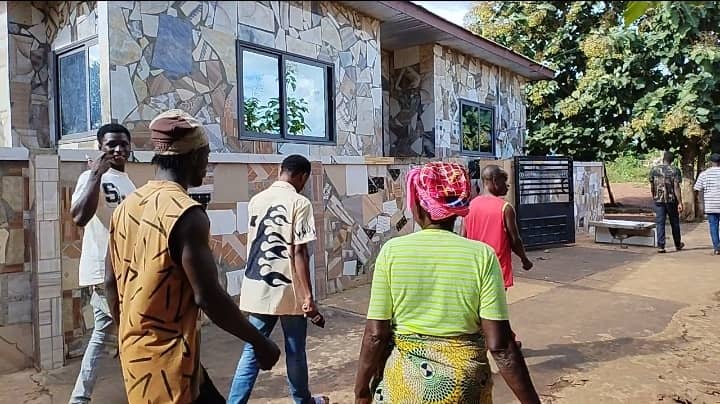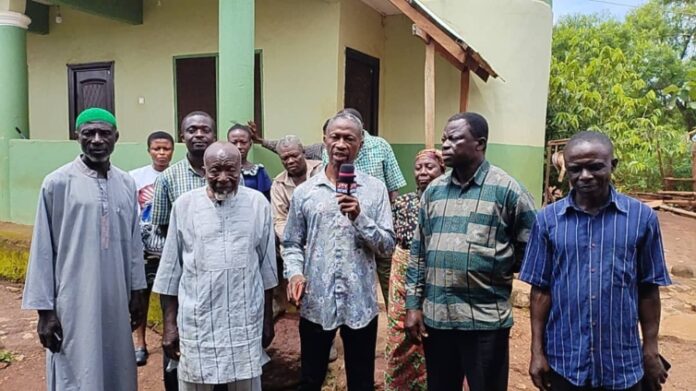Calm has returned to the Techire and Afrisipakrom communities in the Tano North Municipality of the Ahafo region after a week of heightened tension over mining-related grievances.
A planned week-long demonstration against Newmont Ghana’s Ahafo North Project has been suspended following constructive dialogue among residents, local authorities, and company representatives – a resolution many are describing as a triumph of dialogue over despair.
The development follows a JoyNews report published on October 4, 2025, which exposed the growing distress of residents in the two farming communities to the world.
Locals had accused the mining giant of proceeding with operations without adequate compensation, resettlement, or environmental safeguards, leaving households vulnerable to pollution, property damage, and psychological distress from frequent blasting activities.
“Our homes are cracking, our crops are dying, and our children live in fear each time explosives go off,” said Gausu Mohammed, a farmer and resident.
“We’ve written petitions and held meetings, but our cries fell on deaf ears until JoyNews intervened.”
The publication sparked swift responses from the government and corporate stakeholders.
Within days, Newmont Ghana, the Tano North Municipal Chief Executive, and representatives of the Ghana Police Service held emergency meetings with community leaders to address the issues.
At a follow-up press briefing on October 15, 2025, community leaders announced their decision to suspend the planned demonstrations, citing “timely intervention” and renewed commitments from stakeholders to resolve their long-standing grievances.

“Newmont Ghana and the Tano North MCE have promised to ensure proper compensation and resettlement plans are implemented within two weeks,” confirmed Robert Yeboah, a resident and spokesperson for the affected families.
“We are not against development,” added Adjin-Frimpong, another community leader. “All we demand is fairness, dignity, and transparency.”
Mining, Dialogue, and the Power of Engagement
Globally, the mining sector has often been at the centre of social and environmental controversies, especially in Africa, where the continent holds over 30% of the world’s mineral reserves.
Yet, recent studies highlight that structured dialogue between mining companies and affected communities has reduced civil unrest and demonstration risks by over 40% in the past decade (World Bank, 2024).
In South Africa, similar dialogues between Anglo American and displaced communities in Limpopo led to a 60% drop in local protests after compensation frameworks were revised in 2022.
In Tanzania, the Barrick Gold–government-community dialogue platform launched in 2021 resolved over 85% of land and resettlement disputes within a year.
Across West Africa, research by the Africa Mining Vision (AMV) and UNDP shows that effective grievance redress mechanisms and transparent communication reduce violent conflicts in mining zones by up to 50%, preserving both community stability and corporate reputation.
Ahafo’s Turning Point
The Newmont Ahafo North Project – projected to produce 275,000 to 325,000 ounces of gold annually over its 13-year lifespan – is one of Ghana’s most promising gold assets and a key pillar of national economic growth.
Yet, as the Techire and Afrisipakrom episode shows, development without community trust risks eroding social harmony.
The decision to resolve matters through dialogue rather than confrontation offers a model for other mining regions across Africa grappling with similar tensions.
It underscores how media visibility, corporate accountability, and community engagement can together create pathways for sustainable coexistence.
“Dialogue is not weakness,” said a senior community elder during the peace meeting. “It is the strength that builds bridges where fear once stood.”
Source: Emmanuel Adu-Gyamfi



